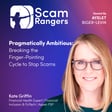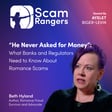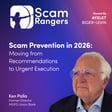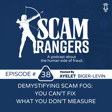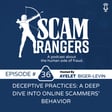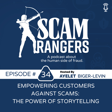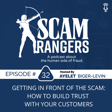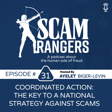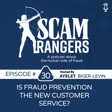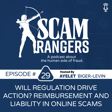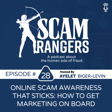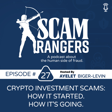
How Australia Slashed Scam Losses by 30% & What’s Missing in the U.S., A Conversation with Ken Palla, Former Director, MUFG Union Bank
In this episode of ScamRangers, host Ayelet Biger-Levin welcomes back fraud and financial crime expert Ken Palla to discuss the evolving global response to scams. They dive into Australia’s groundbreaking Scam Prevention Framework, lessons from the UK’s Contingent Reimbursement Model and Online Safety Act, and why the U.S. lags behind in fraud prevention. Ken shares insights on the need for ecosystem-wide collaboration, financial institutions' role in scam prevention, and the regulatory challenges hindering progress in the U.S.
Tune in to learn:
- How Australia reduced scam losses by nearly 30% in one year
- The UK’s mandatory scam reimbursement regulation and its implications
- Why financial institutions must take a proactive role in scam prevention
- The challenges and opportunities for data sharing and fraud controls in the U.S.
- The rise of AI-driven scams and what banks can do to protect their customers
Links Mentioned in This Episode:
- Ken Palla on LinkedIn: https://www.linkedin.com/in/ken-palla-09b585/
- Ken Palla’s Blog on the California Senate Hearing: https://www.biocatch.com/blog/california-senate-scam-prevention
- Aspen Institute Financial Health Task Force : https://fraudtaskforce.aspeninstitute.org/
- Latest FTC Scam Statistics Report?: https://www.ftc.gov/news-events/news/press-releases/2025/03/new-ftc-data-show-big-jump-reported-losses-fraud-125-billion-2024
This podcast is hosted by Ayelet Biger-Levin, who has spent the last 15 years building technology to help financial institutions authenticate their customers and identify fraud. She believes that when it comes to scams, the story starts well before the transaction. Ayelet created this podcast to talk about the human side of scams and to learn from those dedicated to advocating for scam victims and taking action against fraud.
Be sure to follow Ayelet on LinkedIn: https://www.linkedin.com/in/ayelet-biger-levin/
Learn more about her work at RangersAI: https://www.rangersai.com/
